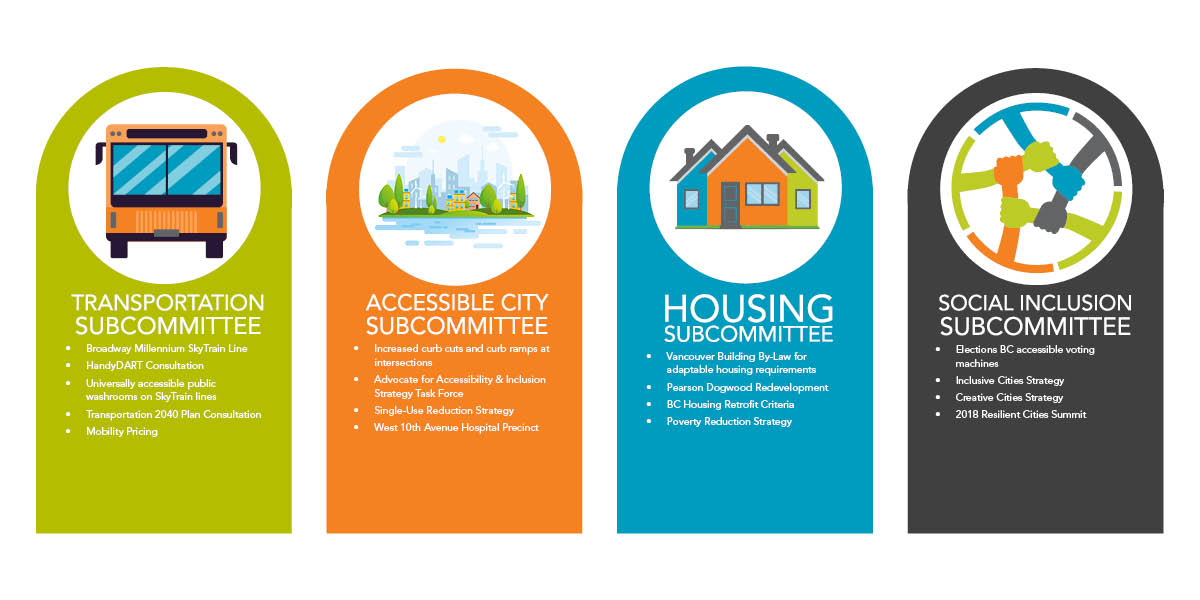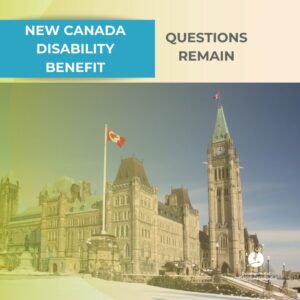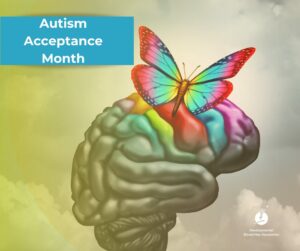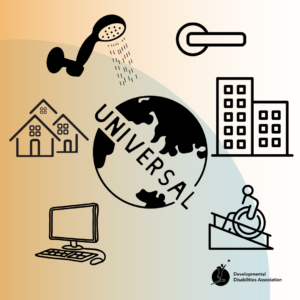By: Tasia Alexis & Marianna Schultz
Throughout our history, DDA has always prioritized advocacy. Over the past 15 years, Assistant Director Tasia Alexis, who has been supporting persons with developmental disabilities for 41 years, has represented DDA while advocating for change on the Persons with Disabilities Advisory Committee at Vancouver City Hall. These changes come in the form of accessible transit, social inclusion and accessible and affordable housing. Tasia often says, “If you improve services for people with disabilities, you improve services for everyone.”
Living with a disability is a universal experience. Living with a disability is more than a health problem. It can affect children, teens, adults, men, women, gay, transgendered, every race, ethnicity and social class.
Though some aspects of accessibility in the city are improving, advocates can still sometimes find themselves fighting for the most basic human rights. Tasia is one of many who recommended a public restroom be included on the Broadway Millennium SkyTrain line as a part of the 2040 Transportation plan. The right to have access to a public restroom is important on the increasingly busy SkyTrain, which is often used to reach the Vancouver General Hospital and a multitude of medical centres available along the line.
“One of the hardest parts of being an advocate is getting the right person’s attention,” Tasia explains, “because there are so many competing interests and problems.” In order to capture the attention of the persons making the decisions, Tasia uses real-life examples to explain why this concern or cause is important and let people relate to it. Advocacy always requires patience, persistence and a plan.
CITY OF VANCOUVER INCLUSION AND ACCESSIBILITY STRATEGY
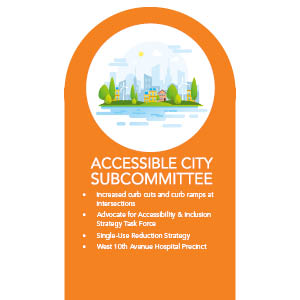 A number of years ago, the Persons with Disabilities Advisory Committee recognized the need for an overarching Inclusion and Accessibility Strategy that will set priorities and timelines for the City. There are currently over one hundred policies and strategies in place in the city, but not one for accessibility and inclusion.
A number of years ago, the Persons with Disabilities Advisory Committee recognized the need for an overarching Inclusion and Accessibility Strategy that will set priorities and timelines for the City. There are currently over one hundred policies and strategies in place in the city, but not one for accessibility and inclusion.
On September 7, 2018, Vancouver City Council recommended the development of Phase 1 of an Accessibility Strategy. The staff convened a task force of appointed representatives from the Persons with Disabilities Advisory Committee, Senior Advisory Committee and People with Lived Experienced Advisory on Mental Health and Addiction. Tasia is a member of the Accessible Strategy Task Force.
PEARSON DOGWOOD REDEVELOPMENT
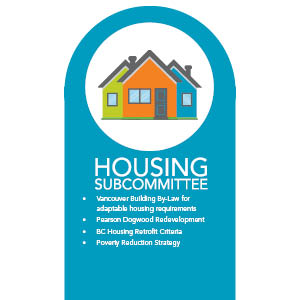 Another large project that Tasia has been part of is the redevelopment of the Pearson Dogwood lands. The George Pearson Centre (GPC) located on the site is closing and the building will be demolished. The residents living there will be re-housed by Vancouver Coastal Health on the same site. With 14 years of experience working at Woodlands institution, Tasia understands the importance of ensuring the new development is inclusive.
Another large project that Tasia has been part of is the redevelopment of the Pearson Dogwood lands. The George Pearson Centre (GPC) located on the site is closing and the building will be demolished. The residents living there will be re-housed by Vancouver Coastal Health on the same site. With 14 years of experience working at Woodlands institution, Tasia understands the importance of ensuring the new development is inclusive.
A Consensus Housing and Support Proposal for the Pearson Redevelopment was collaboratively prepared by the Pearson Residents Redevelopment Group, BC Coalition for People with Disabilities (Disability Alliance BC) and the City of Vancouver Persons with Disabilities Advisory Committee. This proposal is important because individuals want a voice, autonomy and control over their lives, and input on where, how, and who they live with in their homes.
When things aren’t progressing in the right way, or seem hopeless, Tasia emphasizes the importance of continuing to show up and participate in ongoing planning to advance access and inclusion.
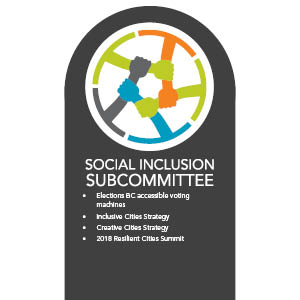 Continuing to be a presence to keep people accountable, or acting as a resource, or understanding the power of policies and bylaws to forward access and inclusion initiatives is important. As a representative of DDA and a City of Vancouver Persons with Disabilities Advisory Committee member, Tasia believes that showing up is key because you never know who may be listening. Changing one person’s mind can often make a world of difference and effect change.
Continuing to be a presence to keep people accountable, or acting as a resource, or understanding the power of policies and bylaws to forward access and inclusion initiatives is important. As a representative of DDA and a City of Vancouver Persons with Disabilities Advisory Committee member, Tasia believes that showing up is key because you never know who may be listening. Changing one person’s mind can often make a world of difference and effect change.
“I have DDA as my focus,” says Tasia. “When you have an opportunity to talk about what you deeply care about, you get to showcase who we are and what we do.”
Thanks to the tireless efforts of Tasia and many other advocates, DDA has been a part of important work in the city. Developing with accessibility in mind is a crucial part of being an inclusive community.
DID YOU KNOW?
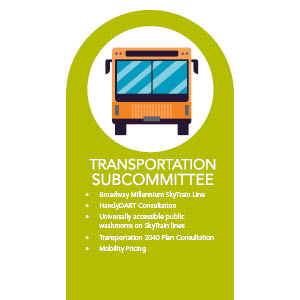 Did you know that over 5% of Vancouver residents have some form of physical disability or mobility restriction? When you include their accompanying family, friends and staff, about 50% of Vancouver residents are affected by poor access to buildings, and that is just the beginning.
Did you know that over 5% of Vancouver residents have some form of physical disability or mobility restriction? When you include their accompanying family, friends and staff, about 50% of Vancouver residents are affected by poor access to buildings, and that is just the beginning.
World Health Organization Stats:
- In BC, the prevalence of persons living with a disability is 14%
- 1 in 7 Canadians age 15 and older lives with a disability
- In BC, 14.8% of persons live with a disability
- 3.8 million Canadians reported having a disability that limited their daily activities
